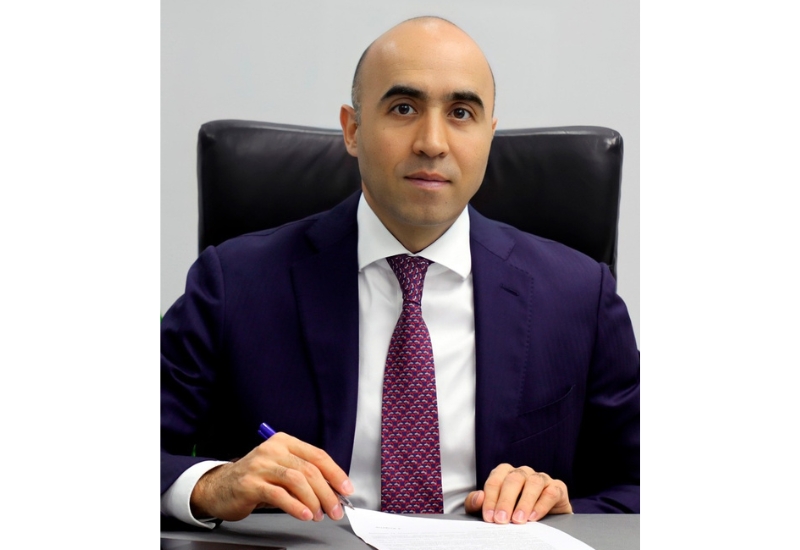BAKU, Azerbaijan, June 19. Uzbekistan is gaining significant traction among global investors, as evidenced by the growing presence of major institutional players and improved sovereign credit ratings, said Aziz Gafurov, Head of the Secretariat of the Foreign Investors Council (FIC) under the President of Uzbekistan, in an interview with Trend.
"One strong signal is the entry of major institutional players like Franklin Templeton into the Uzbek market," Gafurov noted. "These firms conduct extensive due diligence and weigh risks against potential returns very carefully. Their decision to invest demonstrates that Uzbekistan’s risk profile has improved significantly – and that the benefits now clearly outweigh the concerns".
He emphasized that the arrival of such reputable firms reflects growing confidence in Uzbekistan’s macroeconomic trajectory and reform agenda. "As I mentioned before, major investors in the market reflect growing confidence in the country’s macroeconomic stability and reform trajectory".
Global ratings validate economic stability
Another sign of international confidence came in May 2025, when S&P Global Ratings revised Uzbekistan’s sovereign outlook to positive. According to Gafurov, "This reflects macroeconomic stability and commitment to reforms".
Investor interest is also evident in the rising international participation in the Tashkent International Investment Forum. "The steadily increasing number of participants and delegations attending from across the globe signals a broader and deepening interest in Uzbekistan as a rising investment destination," he said.
Geopolitical stability and logistics as investment advantages
Positioning Uzbekistan as a gateway economy in Central Asia, Gafurov pointed to several advantages for investors. "With the largest population in Central Asia and a strategically central location, we offer investors access not just to our own fast-growing domestic market, but also to the broader region".
He also underlined the importance of political positioning and infrastructure: "We maintain a multi-vector foreign policy, balancing strong ties with global powers and regional neighbors, which gives investors a sense of geopolitical stability. Add to that our young, educated workforce and improved connectivity – including through international logistics corridors – and you have a compelling investment destination within Central Asia".
Aziz Gafurov also noted a clear shift toward active economic transformation in Uzbekistan. "The FIC plays an important role in the country’s transformation by acting as a consolidator between investors and the government," Gafurov said. "Uzbekistan’s approach marks a shift from reactive to proactive policymaking, and it signals to the international community that Uzbekistan is serious about building a modern, open economy."
According to Gafurov, predictability is now a key component of Uzbekistan’s investment climate. "Beyond regulatory reform, we help create predictability. Investors want to know what’s coming — whether it’s new legislation, procedural updates, or strategic initiatives," he said. "Through our Secretariat, we offer early insights and ongoing engagement. That helps businesses plan more effectively and reduces the element of surprise, which is often a key risk factor in emerging markets".
Support for human capital development
He also pointed to growing efforts to develop local talent in partnership with the private sector. "We encourage investors to contribute to talent development. Leading firms - including global consultancies and financial institutions - have launched corporate academies to train local talent and strengthen the workforce," he noted.
While traditional sectors such as energy and banking remain strong, Gafurov emphasized a surge of interest in newer areas. "Beyond the well-known sectors, there is growing interest in tourism, logistics, digital services, and creative industries," he said. "The tourism sector, in particular, has enormous untapped potential and is seeing increased government support".
Green infrastructure and sustainable energy are also gaining traction. "We’re seeing growing interest in solar and wind power projects, supported by global players such as ACWA Power and Masdar," Gafurov said, adding that these areas align with the goals of the Uzbekistan 2030 Strategy.
Rising interest in emerging sectors
The presence of global institutional investors is further evidence of Uzbekistan’s evolving market appeal. "Major global players are preparing market-entry strategies - they see Uzbekistan not just as an opportunity, but as a priority," he said. "Some are already investing in what you might call ‘blue chip’ opportunities - high-value sectors backed by strong fundamentals and long-term potential. The fact that these serious investors are willing to commit capital shows that the country has reached a new level of maturity".
Gafurov highlighted Uzbekistan’s cultural and creative assets as a potential driver of growth. "Uzbekistan’s impressive cultural heritage and vibrant creative scene - from craft and design to architecture to cuisine - offer a strong foundation for expanding investments in the creative economy," he said. "Combined with rising tourism flows, these sectors represent both cultural richness and real commercial opportunity".
He emphasized the Council’s critical role in bridging the gap between the government and foreign investors. "The Foreign Investors Council acts as a consolidator between investors and the government, helping to shift policymaking from reactive to proactive," Gafurov said. "This demonstrates Uzbekistan’s commitment to building a modern and open economy".
Uzbekistan has pursued market liberalization and increased transparency in recent years, which has contributed to a significant improvement in its investment climate. The results are visible: in 2024, the country attracted $34.6 billion in total investments, including $11.9 billion in foreign direct investment (FDI). These investments supported the creation of more than 32,700 new jobs and the launch of 242 new projects nationwide.
Gafurov highlighted that these figures reflect the government’s dedication to reforms aimed at improving the ease of doing business. "Our approach sends a clear message to the international community that Uzbekistan is serious about economic modernization and creating a favorable environment for foreign investors," he added.







